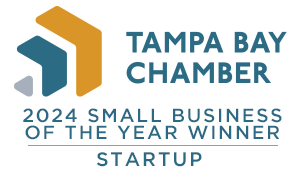In the world of entrepreneurship, the debate between the value of education and experience is a longstanding one. Both play pivotal roles in shaping a successful business, but the true magic happens when they are combined. Education provides the theoretical framework, while experience brings practical insights that are invaluable in the real world.
It's one thing to know how the engine fires. It's another to know when to downshift and drive like hell.
The Role of Education
Education is often the first step in an entrepreneurial journey. It lays the foundation for understanding complex concepts and equips entrepreneurs with essential skills. Here’s how:
Foundational Knowledge
Academic programs offer a structured approach to learning. Courses are designed to cover the fundamentals of business, ensuring that students have a solid grasp of core principles. For instance, an entrepreneur might study business administration, finance, marketing, and management theories.
Analytical and Critical Thinking
Education encourages analytical thinking. Through problem-solving exercises, research projects, and theoretical explorations, students learn to approach issues methodically and develop critical thinking skills. These skills are crucial for analyzing market data, identifying trends, and making informed business decisions.
Professional Credentials
Earning a degree or certification often serves as a credential that validates one’s knowledge and skills. It can open doors to networking opportunities, investors, and potential partners. For example, an MBA can provide a strong foundation for an entrepreneur, offering valuable insights into business strategy and operations.
Access to Resources and Networks
Educational institutions often provide access to a wealth of resources, including libraries, research databases, and industry contacts. Networking opportunities with peers, professors, and alumni can also be invaluable. These connections can lead to mentorship, partnerships, and even funding opportunities.
The Impact of Experience
While education provides the groundwork, experience is where theory is put into practice. Real-world experience teaches lessons that books simply cannot:
Practical Application
Experience allows entrepreneurs to apply their knowledge in real-world settings. This could involve launching a startup, managing a team, or negotiating with suppliers. The practical application of theoretical knowledge helps refine and adapt skills to real-life scenarios.
Intuitive Decision-Making
Over time, entrepreneurs develop intuition—an almost instinctive understanding of their business. This intuition comes from facing various challenges, learning from mistakes, and observing outcomes. It’s the ability to make quick, effective decisions under pressure, a skill honed only through experience.
Soft Skills and Relationships
Working in the field helps cultivate soft skills like communication, teamwork, and leadership. Building relationships with employees, customers, and stakeholders is crucial for business success. These interactions teach empathy, negotiation, and the art of influence—skills that are rarely taught in classrooms.
Resilience and Adaptability
Entrepreneurship is fraught with challenges and setbacks. Real-world experience teaches resilience—the ability to bounce back from failures and setbacks. It also fosters adaptability, helping entrepreneurs pivot and adjust their strategies in response to changing market conditions.
The Synergy of Education and Experience
The true power lies in combining education with experience. Here’s how they complement each other:
Enhanced Problem-Solving
Education provides the tools and frameworks, while experience offers context and understanding. Together, they enable entrepreneurs to approach problems from multiple angles, devising innovative and effective solutions. For instance, a business owner with a solid grasp of marketing theories can craft better campaigns by understanding real-world consumer responses.
Adaptability and Growth
Theoretical knowledge needs to be adaptable to the ever-changing business landscape. Experience teaches flexibility and adaptability. When combined, they allow entrepreneurs to stay ahead of industry trends and continuously grow their businesses.
Confidence and Credibility
Entrepreneurs with both strong educational backgrounds and extensive experience are often more confident and credible. They can back their decisions with both theoretical knowledge and practical insights, earning the trust and respect of their team, investors, and customers.
Strategic Vision and Execution
Education can provide a broad perspective and strategic vision, while experience offers the ability to execute plans effectively. This combination enables entrepreneurs to set ambitious goals and achieve them through well-informed and practical steps.
Real-World Examples
Consider the tech industry: A startup founder with a computer science degree understands algorithms and coding languages, but it’s through years of developing software, troubleshooting issues, and collaborating with teams that they become a proficient developer and effective leader.
In retail, a business owner’s education in supply chain management provides essential logistics knowledge, but real-world experience with inventory management, supplier negotiations, and customer service is what molds a successful retail entrepreneur.
In the service industry, an entrepreneur with a hospitality management degree learns about service standards and operations, but it’s the hands-on experience with managing staff, handling customer feedback, and optimizing service delivery that shapes a thriving business.
In entrepreneurship, having a strong educational foundation is crucial. But, it's the real-world experience that truly rounds out one’s expertise. And, it's the combination of both that drives entrepreneurial success.



